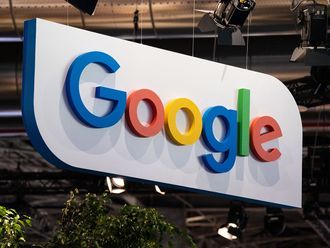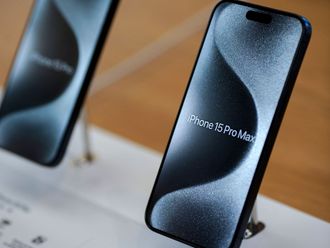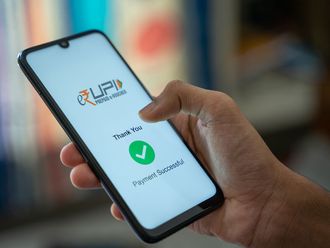If Apple had dreams of dominating the future of mobile phones, Google may have just given its rival a rude wake-up call. The two technology giants, once close allies, are increasingly at odds over competing technologies, and recently the clash has intensified with Google mounting a surprising attack on Apple's iPhone.
A research firm said this week that phones with Google's Android operating system outsold Apple's iPhone in the US for the first time. Google devices accounted for 28 per cent of the smartphones bought in the first quarter, while Apple's iPhone tallied 21 per cent of sales, according to market research firm NPD Group.
Research in Motion's BlackBerry, popular among business users, continued to lead the market with 36 per cent. The report highlighted Google's shotgun approach to spreading its mobile technology. The company gives away the Android operating system to anyone who wants it at no charge. Android powers 34 smartphones made by 12 manufacturers and is offered by all four major wireless carriers.
Apple's iPhone — its single mobile phone offering — is available only from AT&T. "Android is the big gainer in this market at the moment," said Andrew Lipsman, a director at the technology ratings firm ComScore. Its data show that in the last year Google has come essentially out of nowhere to capture a substantial slice of the US smartphone market.
In March last year only 2 per cent of smartphones were running Google's Android, according to ComScore. A year later that figure shot up to 10 per cent. Apple's iPhone accounts for 25 per cent of the market, but its market share has been flat since fall.
Leader
Both Apple and Google are well behind RIM, which has consistently controlled about 42 per cent of the smartphone market. Flooding the market with Android is a signature Google move. Google is well known for giving away many of its most popular products and services — web search, email and office software — to broaden the audience it can reach with its core business, advertising. "The business benefit to Google from the increasing adoption of Android is purely in driving usage of the Web on mobile devices," Google spokesman Anthony House said.
He added that users of Android phones, where Google's search engine is a prominent feature on the phone, tended to perform many more web searches than the average smart-phone user. Google said about 60,000 Android phones were sold each day, or about 5.4 million per quarter.
Obstacles
Still, Google has hit several speed bumps in the smartphone race. This week, two major wireless carriers, Sprint and Verizon, backed off from plans to sell Google's much-touted Nexus One phone, the web giant's first effort at independently building and marketing its own phone.
Instead, Google said the companies would focus on newer Android-based offerings — the EVO 4G from Sprint and Verizon's Droid Incredible. "The Nexus One is a victim of Android's success," Ross Rubin of the NPD Group said. "There's so much innovation happening so quickly now, by the time the handset was ready for these carriers, there were better options in the marketplace."
What's more, sceptics of Google's jump in sales, including Apple itself, raised doubts about whether Google's sales increase might just be a temporary uptick.











